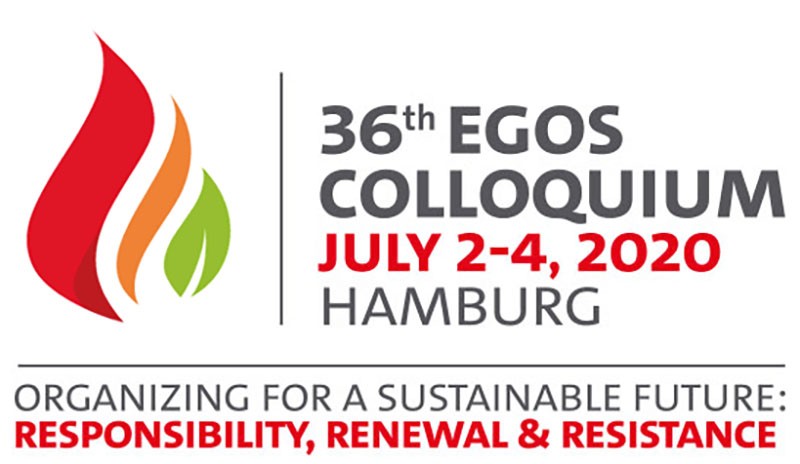Sub-theme 50: Social-Symbolic Work for Societal Grand Challenges: Constructing Sustainable Selves, Organizations, and Institutions
Call for Papers
This sub-theme aims to explore how social-symbolic work is used to address (or undermine) the societal grand challenges
that we must overcome to achieve a sustainable future. Such challenges include, but are not limited to, fostering equality
in organizations, promoting the inclusion of stigmatized groups in society, providing good and affordable healthcare, and
tackling climate change. We are interested in all forms of “work” including but, not limited to, identity work, diversity
work, stigma work, institutional work, boundary work, and category work.
Social-symbolic work represents
the purposeful, reflexive efforts of individuals, collective actors, and networks of actors intended to shape or maintain
the social-symbolic facets of organizational life (Phillips & Lawrence, 2012). It can involve efforts to shape broad institutional
structures, including categories and practices (Khaire & Wadhwani, 2010; Zietsma & Lawrence, 2010), social-symbolic
features of organizations such as strategies and boundaries (Drori et al., 2013; Whittington, 2006), or the self, including
identity and emotions (Brown & Toyoki, 2013; Creary et al., 2015; Zapf, 2002).
Social-symbolic work has
an important and complex relationship to societal grand challenges. Grand challenges are described as important societal problems
that require “coordinated and sustained effort from multiple and diverse stakeholders toward a clearly articulated problem
or goal” (George et al., 2016: 1881). There are at least two important connections to social-symbolic work implicit in this
definition:
The first involves the social-symbolic work done to establish a societal grand challenge: such challenges are not simply sitting there, waiting to be discovered. Instead, societal grand challenge must be socially constructed, a process in which actors work to construct a situation not only as problematic, but as constituting one of society’s major challenges.
The second connection involves the work done to address the challenge. Coordinated and sustained collaborative efforts are at the heart of the social-symbolic work perspective, which is focused on understanding why, how, and with what effects such efforts occur (Phillips & Lawrence, 2012).
Therefore, this sub-theme focuses
on exploring the social-symbolic work involved both in establishing societal grand challenges and responding to them.
In keeping with the Colloquium theme of “Organizing for a Sustainable Future: Responsibility, Renewal & Resistance”,
we are interested in exploring how social-symbolic work is involved in constructing sustainable selves, organizations, and
institutions. Our interests in this relationship are wide-ranging, but a few areas that could be of particular interest include:
How, when, and why actors engage in social-symbolic work to shape equality and inclusion:
How and when does social-symbolic work on the self promote equality and inclusion in organizational life?
How and when does social-symbolic work on strategies and boundaries promote equality and inclusion in organizational life?
How and when does social-symbolic work on social structures promote equality and inclusion in organizational life?
The intended and unintended consequences of social-symbolic work aimed at addressing grand challenges:
How does social-symbolic work on grand challenges affect individuals’ identities and relationships?
How does social-symbolic work on grand challenges affect the organizations involved in and connected to that work?
How does social-symbolic work on grand challenges shape broader social structures, such as beliefs, norms, and categories?
Specific contexts in which the interplay of social-symbolic work and the complexities of societal grand challenges
are most evident and important. Topics might include:
Social-symbolic work on grand challenges in and around publicly-traded companies
The social-symbolic work of dominant groups grappling with the inclusion of marginalized groups, or of marginalized groups working to overcome their exclusion
The social-symbolic work of actors encountering resistance to their efforts to address grand challenges
We recognize that there may be few existing
studies that are explicitly focused on these relationships and so we encourage submissions that only partly address the questions
and issues we are raising in this Call, with the understanding that selected presenters will be expected to revise their presentations
to more closely connect with the focus of the sub-theme and the Colloquium. Finally, while we welcome theoretical explorations
of social-symbolic work, we want to especially encourage empirical investigations that connect social-symbolic work to addressing
societal grand challenges.
References
- Brown, A.D., & Toyoki, S. (2013): “Identity Work and Legitimacy.” Organization Studies, 34 (7), 875–896.
- Creary, S., Caza, B., & Roberts, L. (2015): “Out of the Box? How Managing a Subordinate’s Multiple Identities Affects the Quality of a Manager-Subordinate Relationship.” Academy of Management Review, 40 (4), 538–562.
- Drori, I., Wrzesniewski, A., & Ellis, S. (2013): “One Out of Many? Boundary Negotiation and Identity Formation in Postmerger Integration.” Organization Science, 24 (6), 1717–1741.
- George, G., Howard-Grenville, J., Joshi, A., & Tihanyi, L. (2016): “Understanding and Tackling Societal Grand Challenges through Management Research.” Academy of Management Journal, 59 (6), 1880–1895.
- Khaire, M., & Wadhwani, R.D. (2010): “Changing Landscapes: The Construction of Meaning and Value in a New Market Category – Modern Indian Art.” Academy of Management Journal, 53 (6), 1281–1304.
- Phillips, N., & Lawrence, T.B. (2012): “The turn to work in organization and management theory: Some implications for strategic organization.” Strategic Organization, 10 (3), 223–230.
- Whittington, R. (2006): “Completing the Practice Turn in Strategy Research.” Organization Studies, 27 (5), 613–634.
- Zapf, D. (2002): “Emotion work and psychological well-being: A review of the literature and some conceptual considerations.” Human Resource Management Review, 12 (2), 237–268.
- Zietsma, C., & Lawrence, T.B. (2010): “Institutional Work in the Transformation of an Organizational Field: The Interplay of Boundary Work and Practice Work.” Administrative Science Quarterly, 55 (2), 189–221.


